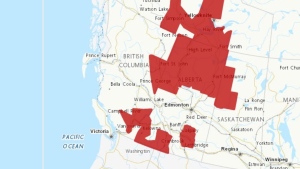A recent paddling event in Brantford, Ontario brought attention to a significant piece of history – the 400-year-old Treaty of Niagara.
Organized by the Six Nations of the Grand River Development Corporation, the event saw participants paddle along the Grand River, stopping at various locations to learn about the treaty and its impact on the region.
The Treaty of Niagara, signed in 1764, was an agreement between the British Crown and the Haudenosaunee (also known as the Iroquois Confederacy) that established peace and friendship between the two parties. It also recognized the sovereignty and land rights of the Haudenosaunee people.
According to Six Nations Chief Ava Hill, the treaty is still relevant today and serves as a reminder of the importance of maintaining good relationships between Indigenous and non-Indigenous communities.
The paddling event not only highlighted the historical significance of the treaty, but also served as a way to educate the public about the ongoing struggles faced by Indigenous communities.
As participants paddled along the river, they were able to see firsthand the land that was promised to the Haudenosaunee people in the treaty. This visual representation helped to bring the treaty to life and shed light on the importance of upholding its principles.
The event also featured guest speakers, including Indigenous elders and leaders, who shared their knowledge and perspectives on the treaty and its impact on their communities.
In addition to educating the public, the paddling event also served as a way to promote reconciliation and understanding between Indigenous and non-Indigenous peoples. It provided an opportunity for people to come together and learn from each other, fostering a sense of unity and respect.
As the event came to a close, participants were left with a deeper understanding and appreciation for the Treaty of Niagara and its enduring significance. It served as a powerful reminder of the importance of acknowledging and honoring the land and treaties on which we live.
In conclusion, the paddling event in Brantford was a meaningful and educational experience that brought attention to the 400-year-old Treaty of Niagara and its ongoing relevance in today’s society. It served as a reminder of the importance of recognizing and respecting the rights and sovereignty of Indigenous peoples, and promoting reconciliation and understanding between all communities.



